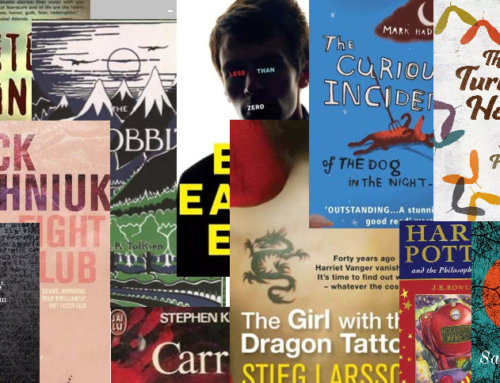Every author should consider turning their book into an audiobook.
Why? The audiobook market is growing fast, with many book lovers discovering that audiobooks are an easier way to read while on the move or performing other tasks.
Everyone is seeking to optimize their time. It is quickly becoming the norm to listen to audiobooks at the gym, during the office commute, or on a walk.
To tap into this market, you will first need to find the right narrator. Let’s look at where you can source professional voices, how casting works, and what you should expect from a voice actor.
What should I do to prepare for casting?
Professional voice actors and narrators need a concrete brief before they get started.
Do you want a specific delivery style or tone, e.g., authoritative or conversational? Do you want a regional English accent like Australian or Scottish? Are there different characters that will need to be voiced in distinctive ways? If yes, do you have character descriptions for each that include age, gender, demeanor, and tone?
These are all questions you need to figure out before setting out to find a voice actor.
You may want to read more about the voice-over industry to understand these concepts better. It can be a huge help to nail down precisely what you want, but if you’re unsure where to start, a voice-over agency can help. The last thing you want is to change your mind halfway through your project!
What do I look for in a voice actor?
There are several things you will need to consider to find the best voice actor for you and your book.
You can describe a voice in five main ways:
- tone of the voice
- pace of speech
- timbre or pitch
- accent, dialect, or language
- style of reading
Like I mentioned in the brief casting section, you will want to nail down a particular delivery style and a specific tone you want the voice to use for your content; these aspects are generally the most crucial to casting. You will also need to think about pitch and pacing. Each one of these factors is equally important as the next when casting a voice.
The delivery style will rely on your book’s purpose and genre, as they determine who is listening. Different tones and delivery styles work best for different audiences.
If you have a children’s book, for example, then you may want to employ a voice that has an experienced, friendly, nurturing tone. An educational or narration style with a higher pitch and steady pacing may be best for children.
Another way to cast a voice is by style. For example, ‘Narration’ is a style featured on Voquent.com, which can help you find talent specifically tailored for long-form narration projects like audiobooks.
Where can I look for voice actors?
Like any other professional service, many companies offer audiobook production and voice-over recording services.
I work for Voquent, a world leader in casting professional voice actors and narrators that offers a comprehensive and intuitive search that can help you narrow down your selection from tens of thousands of demos.
If you’re not sure about using an online platform, another option would be to get in touch with your local recording studio. Your local recording studio will no doubt have resident voice actors that they can book. Obviously, with COVID-19 lockdowns abounding, you will need to follow local restrictions, but COVID-19 won’t last forever. Recording locally may also be more expensive, as you need to factor in the studio hire cost.
If recording locally isn’t an option for you, there are plenty of other online sources to find voice talent. You can hire freelance voice actors directly via platforms such as PeoplePerHour, Guru, or Upwork. These websites provide customers with any freelancer for their needs. Posting a gig or job about your audiobook requirement will connect you with voices actors who can record professionally from their home studios.
The only real downside to working with freelancers from these sites is the selection process. You are responsible for crafting the brief, and you will need to review all the applications and listen through auditions and showreels. If you have the time to do this, it makes sense, but a voice-over agency will save you the headache and help you to refine the brief and find voices that fit your budget.
You will also be responsible for quality control of the final recordings, and they may or may not edit the files for you. You might have to find a sound engineer to do this for you and produce a final sound file with the proper technical specifications for quality audiobook publication.
What about social media? Can I look there?
Absolutely! Before I became a writer full time, I freelanced. I found quite a few clients through social media sites such as Reddit, Twitter, and Facebook.
- On Facebook, you may want to start by looking for acting groups. Request to join a group and post a casting call on their page. Just be sure to follow individual group rules and ask the group admins beforehand.
- On Twitter, you can both post and search for posts. You can search and post your casting call in hashtag groups such as #jobfairy, #freelancers, #voiceactors, # voice-over, #actors, #castingcall, #jobopening, and #hiring. These are only a handful of the hashtags that you can use. I recommend doing a bit more research into trending Twitter hashtags.
- On Reddit, browse and post on relevant subreddit pages. As a place to start, you could try r/freelancers, r/forhire, r/jobbit, r/actors, r/workonline, or r/voiceover. Voice actors may lurk in common genre subreddits too.
In summary
Take your time when it comes to choosing the voice actor. Don’t choose the cheapest, because the narrator’s performance will underpin how the audience responds and engages with your future books.
There are plenty of places to find a voice actor. Agencies like Voquent will take out the hassle and won’t necessarily cost more than going directly to a freelance narrator.
Remember, going cheap on the voice actor could end up costing you more in lost sales and future goodwill if their performance or recording gear isn’t up to the job.
I hope my advice helps you find the unique voice you are looking for!






